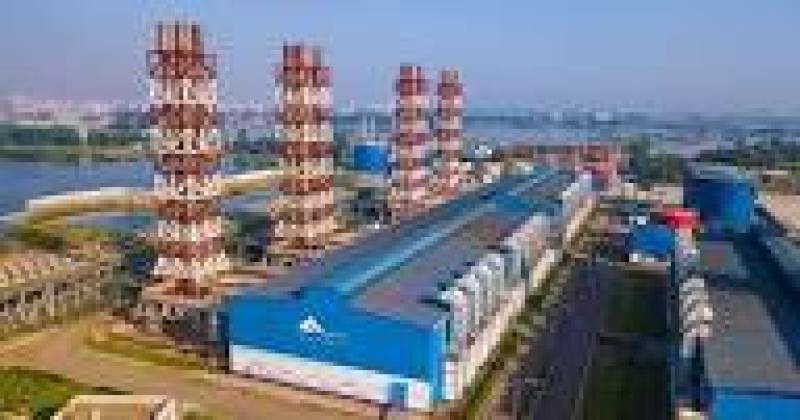- Intimidation or bloodshed cannot halt Bangladesh’s march to democracy |
- Khaleda Zia integral to an important chapter in BD history: Yunus |
- Enthusiasm marks Victory Day celebrations across Bangladesh |
- Dhaka-Delhi ties deep; to be shaped by trust, dignity, mutual respect |
- EU deploys election observation mission to Bangladesh |
Bangladesh Faces Critical Challenges in the Energy Sector

One of the greatest joys of my life has been contributing to Bangladesh’s infrastructure development—particularly at a time when modern port facilities were critically needed. We built the country’s first inland container depot, developed vital oil terminals, and laid the foundation for port-related logistics. That’s where the journey began.
My entry into the energy sector came at a defining moment in Bangladesh’s history. In the mid-1990s, electricity was scarce—only about 20% of the population had access to it. I remember those days clearly. Looking back, I feel both humbled and proud that we were able to start generating electricity then. Today, 100% of Bangladesh’s population has access to electricity. Knowing that Summit played a part in that transformation is one of my greatest personal and professional satisfactions.
A Sector Under Pressure: Emerging Challenges
Despite these strides, Bangladesh’s energy sector now faces new and complex challenges that could stall its economic momentum if not addressed strategically.
The most pressing issue is rising electricity demand, driven by rapid technological change. The global shift toward artificial intelligence, cloud computing, and data centers is creating an unprecedented appetite for power. In countries like the U.S. and across Europe, AI deployment is already straining existing electricity infrastructure. By 2030, data centers alone could consume up to 9% of the total U.S. electricity output—double the current share.
Bangladesh is not immune to this trend. Several factors are converging to drive electricity demand higher: a growing population, widespread adoption of electrical appliances, increasing internet penetration, and a boom in battery-powered vehicles like electric rickshaws.
The Renewable Energy Dilemma
Meeting this demand sustainably is a formidable task. Bangladesh's dense population and limited land area—just 55,000 square miles—pose significant constraints on renewable energy expansion within its borders.
Yet the urgency for clean energy has never been greater. Climate change is no longer a distant threat; it's already impacting us. Each year, floods claim up to 50% of our 45 million tonnes of rice production. The stakes are high.
The only viable solution lies in regional cooperation. Neighboring countries like Nepal and Bhutan have abundant green hydropower potential. Summit Group is actively working on cross-border partnerships to import up to 1,000 megawatts of clean electricity from India.
As Ayesha Khan, Managing Director and CEO of Summit Power International, has rightly said: “It has to make economic sense. When renewables cost less than fossil fuels, people will naturally choose them. And we’re getting to that tipping point.”
Bangladesh is a price-sensitive economy. Affordability is as important as sustainability.
Financial Innovation: A Strategic Lever
Overcoming our energy challenges demands not only technical solutions but also smart financial engineering. When Summit Group incorporated in Singapore in 2016, it wasn’t just a strategic move—it was a necessity. Bangladesh, though full of potential, lacks a mature financial ecosystem and consistent governance required for executing long-term infrastructure projects.
Being headquartered in Singapore has allowed us to access capital at more favorable terms, reducing electricity costs at home and attracting high-profile partners like Japan’s JERA Co., which invested $330 million in Summit Power International for a 22% stake.
Our structure—local roots with global reach—is a model that other emerging market energy firms can emulate.
Infrastructure Beyond Steel and Concrete
To me, infrastructure is not only about power plants, roads, or ports. It’s also about people—especially education, which is the foundation of equity and opportunity.
True equality is only possible through education. It is the ultimate equalizer.
Summit Group has supported education for nearly 8,000 underprivileged children near our power plant sites. This is not charity—it is an investment in the future. Wealth creation should never be an end in itself. It must serve humanity.
A Balanced Path Forward
At Summit, we are implementing pragmatic, forward-looking solutions—from deploying GE’s most efficient combined-cycle gas turbines to preparing for hydrogen fuel. Our strategy balances today’s realities with tomorrow’s promise.
Bangladesh stands at a crossroads in its energy journey. The path forward is complex, but it is also full of opportunity. With continued innovation, regional collaboration, and a steadfast commitment to sustainable development, we are ready to help lead the way.

